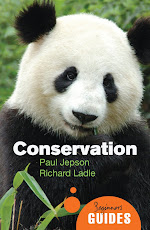However, what really caught our interest was how they finished their commentary: “Furthermore, with the combination of climate change and habitat destruction, novel ecosystems are going to become increasingly common. Their conservation will require a whole new definition of what is ‘natural’”.
But what is natural? Most conservationists would associate the term ‘natural’ with habitats or communities that are: (i) largely or completely unaffected by human actions, and/or; (ii) largely or completely unchanged from some point in the past (normally pre-industrial or pre-human). In terms of practical conservation this often means attempting to recreate or maintain the fauna and flora of some point in the past. This ‘compositionalist’ approach to conservation has become enshrined in targets and policies and, in many parts of the world, is the only way that conservationists think about conservation. A good example of this approach is the Dorset Heathland where great efforts are required to mimic the pre-industrial agricultural practices that helped the habitat flourish in the middle ages.

Heathland now only exists through human intervention
Strictly speaking there are probably very few, if any, habitats that are unchanged and unaffected by human action. This is mainly because of the enormous scale of biological invasion has radically altered the composition of nearly all communities but also because of wide-scale species loss and the extension of human presence into even the remotest areas of the planet. Perhaps the whole idea of the ‘natural’ habitat or ecosystem is past its sell-by date and what conservation needs is not so much a new definition, but to completely move away from the ideas, language and embedded philosophy of ‘naturalness’.
To an extent this is already happening, as many influential voices in the conservation community are moving away from asking “what lived here?” to asking “what could live here?” Indeed, the currently popular concept of ecosystem services almost completely ignores ideas of naturalness in favour of function.

No comments:
Post a Comment